
Patriotism takes many forms – restoration and placement of the artefacts of war across Australia, monuments and memorials to the sacrificed, poetry and music filled with bravado, and special days for remembering.
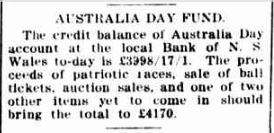
The most gentle form of patriotic fervour must be lace-making, a skill adapted to show support and raise funds for soldiers at war.
This activity took place during both World Wars, but spread nationally during World War I.
The making of these delicate pieces was inspired by the context of the lives of their makers; for those in the collection of the Coffs Harbour Regional Museum, it was the Australian and New Zealand Army Corp. The recent discovery of four fine crocheted shapes required further investigation.

As The Maitland Daily Mercury explained in November 1915:
Mrs. L. A. Cavalier wrote asking the [School of Arts] committee's acceptance for placing on view in the library two samples of crochet work executed by her from designs taken from publications in the reading room. The designs are artistic and unique, and represent a large amount of labour and patience. One represents the "British Lion,", and the other gives the words "Dardanelles 1915, Our Heroes," with a warship in the centre. Mrs. Cavalier's object in undertaking the work was to arouse interest among other lady members, who might be able to improve on the designs, and so foster a work which might be a means of raising some small amounts to help the patriotic funds. Mrs. Cavalier was very heartily thanked for her thoughtfulness and her request acceded to.
SCHOOL OF ARTS. (1915, November 26). The Maitland Daily Mercury (NSW : 1894 - 1939), p. 3. http://nla.gov.au/nla.news-article121710934
What were those publications? Libraries provided free access to both newspapers and journals for those who couldn’t afford to subscribe.
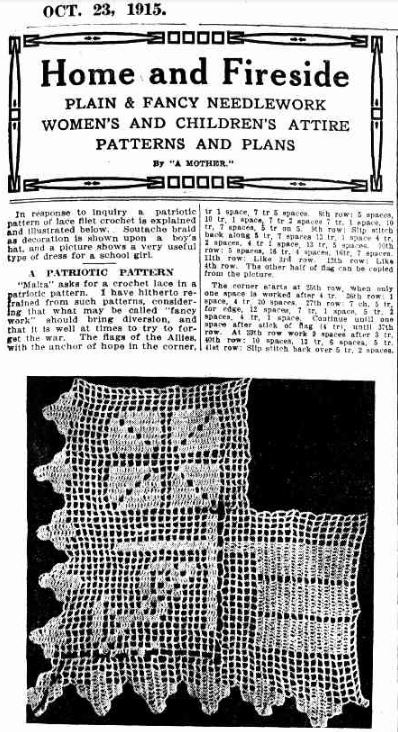
Known as patriotic lace or filet crochet, instructions for creating doilies were provided in a range of publications.
This example shows how to crotchet naval flags and an anchor;
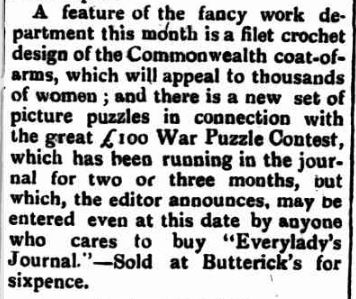
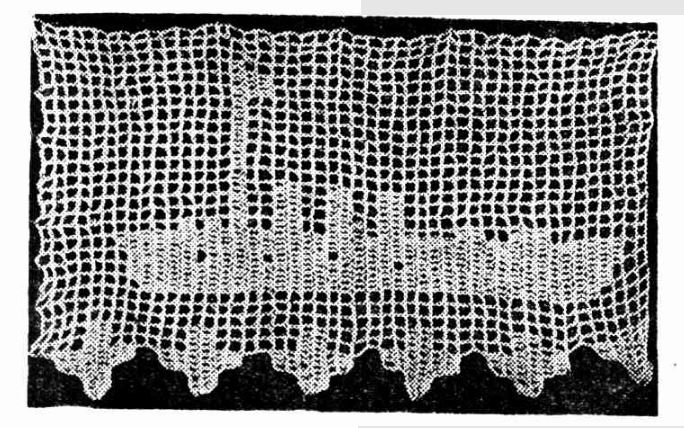
and how to make your lace battleship.
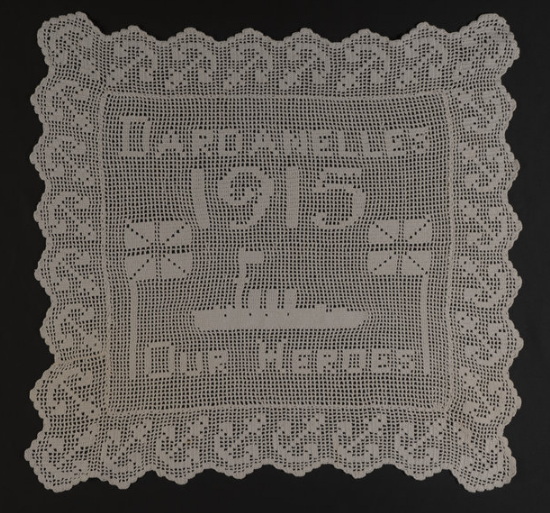
The Australian War Memorial provides further explanation and shows examples of the variations which could be made by skilled artisans:
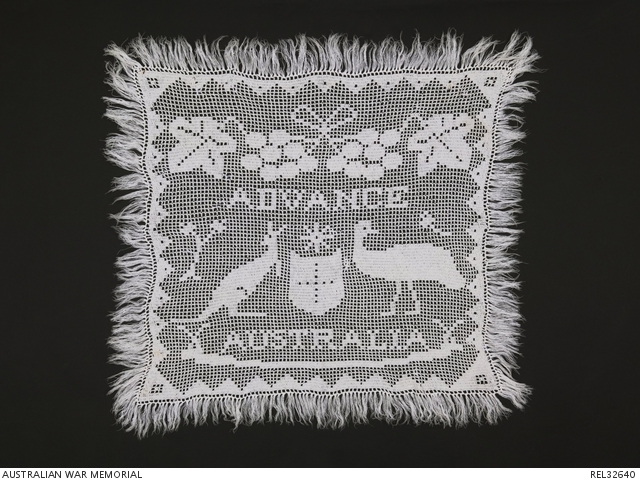
These ideas in turn were inspired by Australian Mary Card, a crotchet pattern designer who shared her designs internationally:
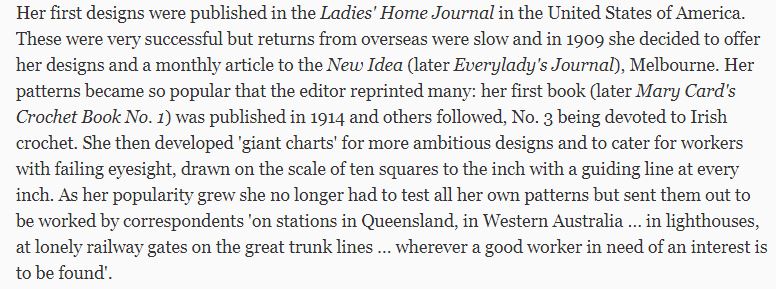
There is still more context to discover. Two of the samples in the Coffs Harbour Regional Museum’s collection were made in Woolgoolga, but this beautiful cheese cloth has little provenance.

A gentle acknowledgement of support for the ANZACs, surviving for more than 100 years, was a beautiful unexpected discovery in our eclectic collection.
More examples of filet crotchet are viewable at:
A STORK ON FILET CROCHET (1915, February 13). Weekly Times (Melbourne, Vic. : 1869 – 1954), p. 11. http://nla.gov.au/nla.news-article129410033
THE HOME. (1915, October 16). Leader (Melbourne, Vic. : 1862 – 1918, 1935), p. 51 (WEEKLY). http://nla.gov.au/nla.news-article90193805
Novel up-to-the-minute design in crochet (1942, July 18). The Australian Women’s Weekly (1933 – 1982), p. 29. http://nla.gov.au/nla.news-article46446492
